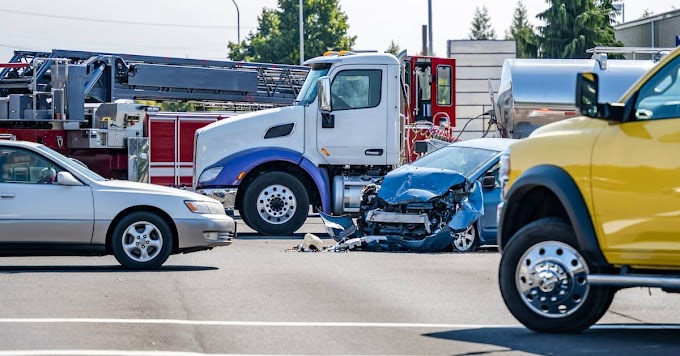House fires are a devastating experience that can happen to anyone at any time. According to the National Fire Protection Association, in 2019, there were 1,291,500 fires reported in the United States, resulting in 3,704 deaths, 16,600 injuries, and $14.8 billion in property damage.
In case of a house fire, the most important thing to do is to get out of the house as quickly and safely as possible. Have a fire escape plan in place and practice it with your family. Make sure that everyone knows the escape routes and where to meet outside the house.
If you encounter smoke or fire, crawl low under the smoke, and try to keep your head as close to the ground as possible. Smoke can be toxic and can make it hard to see, so it's important to stay low.
Once you're out of the house, call 911 immediately and do not go back inside for any reason. Let the firefighters do their job and wait for their instructions.
To prevent house fires, make sure to have working smoke detectors in every room and on every level of your house. Test them regularly and replace the batteries at least once a year. Avoid overloading electrical outlets and unplug appliances when not in use. Keep flammable materials away from heat sources, such as stoves, heaters, and fireplaces.
In conclusion, house fires are a serious and dangerous situation. It's important to be prepared, stay calm, and know what to do in case of a fire. Taking preventive measures and having an escape plan can help minimize the damage and increase your chances of survival.
Causes of House Fires:
House fires can be caused by various factors, including cooking accidents, electrical malfunctions, heating equipment, smoking, and candles. It's essential to identify potential fire hazards in your home and take necessary precautions to minimize the risk.
Cooking Safety:
Cooking is the leading cause of home fires, so it's crucial to practice safety in the kitchen. Never leave cooking food unattended and keep flammable materials, such as dish towels and curtains, away from the stove. If a cooking fire occurs, turn off the heat source and cover the flames with a lid or use a fire extinguisher.
Electrical Safety:
Electrical fires can occur due to overloaded outlets, frayed cords, and malfunctioning appliances. Ensure that you don't overload electrical outlets and avoid using damaged cords or appliances. If you notice any signs of electrical problems, such as sparks or flickering lights, contact a professional electrician immediately.
Heating Safety:
Heating equipment, such as space heaters and fireplaces, can also pose a fire hazard. Keep flammable materials away from heating sources and ensure that heating equipment is placed on a level surface and away from children and pets. Have your heating equipment inspected and serviced annually by a professional.
Candle Safety:
Candles can create a cozy and relaxing atmosphere, but they can also be dangerous if left unattended. Always keep candles away from flammable materials, such as curtains and bedding, and use sturdy candle holders. Don't leave candles burning overnight or in rooms where nobody is present.
In summary, house fires can be devastating, but they can be prevented with proper precautions and safety measures. By being aware of potential fire hazards in your home and taking necessary steps to minimize the risk, you can help keep your family and property safe. Remember to always have a fire escape plan in place and practice it regularly with your family




.jpeg)
.jpg)





